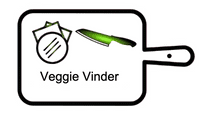How Long Does Summer Sausage Last? Does Summer Sausage Go Bad?
Summer sausage is a delicious meatball sub that comes in a variety of flavors.
If you love summer sausage, then you should definitely try some of these recipes.
Summer sausage is a type of sausage that has a combination of pork and beef.
The meatballs are usually served cold or at room temperature.
They are often served in sandwiches, subs, and wraps.
Summer sausage is a great way to enjoy a sandwich or wrap without having to worry about the bread going soggy.
This recipe uses ground beef and pork, along with spices and seasonings
How Long Does Summer Sausage Last? Does Summer Sausage Go Bad?
Summer sausage is a type of sausage that is usually eaten during summertime. It is made from pork, beef, lamb, veal, poultry, fish, shellfish, and other meats. It is usually served cold or hot. It is available in different flavors such as garlic, pepperoni, Italian herb, and others. It is very popular among people who love barbecue and grilling. It is also used in making many dishes such as burgers, sandwiches, soups, stews, salads, pasta, pizza, and more. It is usually sold in packages or cans. It is not recommended to store summer sausage for long periods because it goes bad easily.

How to Tell if Summer Sausage is Bad?
If you notice any signs of spoilage, such as mold, smell, or discoloration, it is best to throw away immediately. However, if you see no signs of spoilage, you can still eat it but it is better to refrigerate it until it expires.
Does summer sausage ever go bad?
You can store summer sausage in the refrigerator for about three months.
How long can you store summer sausage?
Summer sausages can be stored in the refrigerator for about 3 months.
Does summer sausage really expire?
Sausage can be vacuum packed for several weeks if properly packaged. Vacuum sealing helps to preserve the flavor and texture of the product. Vacuum packing allows the sausage to stay fresh longer. Sausages can be vacuum packed for 2 weeks if properly packaged.
How long can you keep summer sausage?
Yes, summer sausage does expire. It expires because it contains nitrates and sodium nitrite. Nitrates and sodium nitrite are preservatives used to prevent bacteria from growing. These preservatives are added to meat products to extend shelf life. Summer sausage is usually stored in the refrigerator. In order to preserve summer sausage longer, place it in the freezer. Once frozen, summer sausage can last for months.
How do you store unopened summer sausage?
Summer sausage does not go bad. However, it can get dry and hard. To avoid this, store summer sausage in the refrigerator. Also, try to buy summer sausage that is already cooked. This will help reduce the risk of getting salmonella poisoning.
How long is vacuum sealed summer sausage good for?
Yes, summer sausage is still safe to eat after the expiration date. It is important to check the expiration date on the package because if it expires before you open it, you won’t know what’s inside. Summer sausage is usually stored in a vacuum sealed package. This helps prevent spoilage and keeps the meat from drying out.
How long can you keep vacuum sealed sausage?
If you buy summer sausage in bulk, you should put it into a plastic bag and place it in the freezer. Once frozen, transfer it to a resealable container and label it. Store it in the freezer until ready to eat.
Is summer sausage still good after expiration date?
Vacuum sealing is a great way to preserve meat products such as summer sausage. It keeps the product from drying out and helps maintain the quality of the meat. However, if you store your summer sausage in the refrigerator, it will last longer. Summer sausages are usually sold in packages of 10 or 20 pounds. Vacuum sealing is recommended for summer sausage because it allows the meat to retain moisture and prevent spoilage. Vacuum sealing does not affect the flavor of the meat. In addition, it prevents the growth of bacteria and molds.
